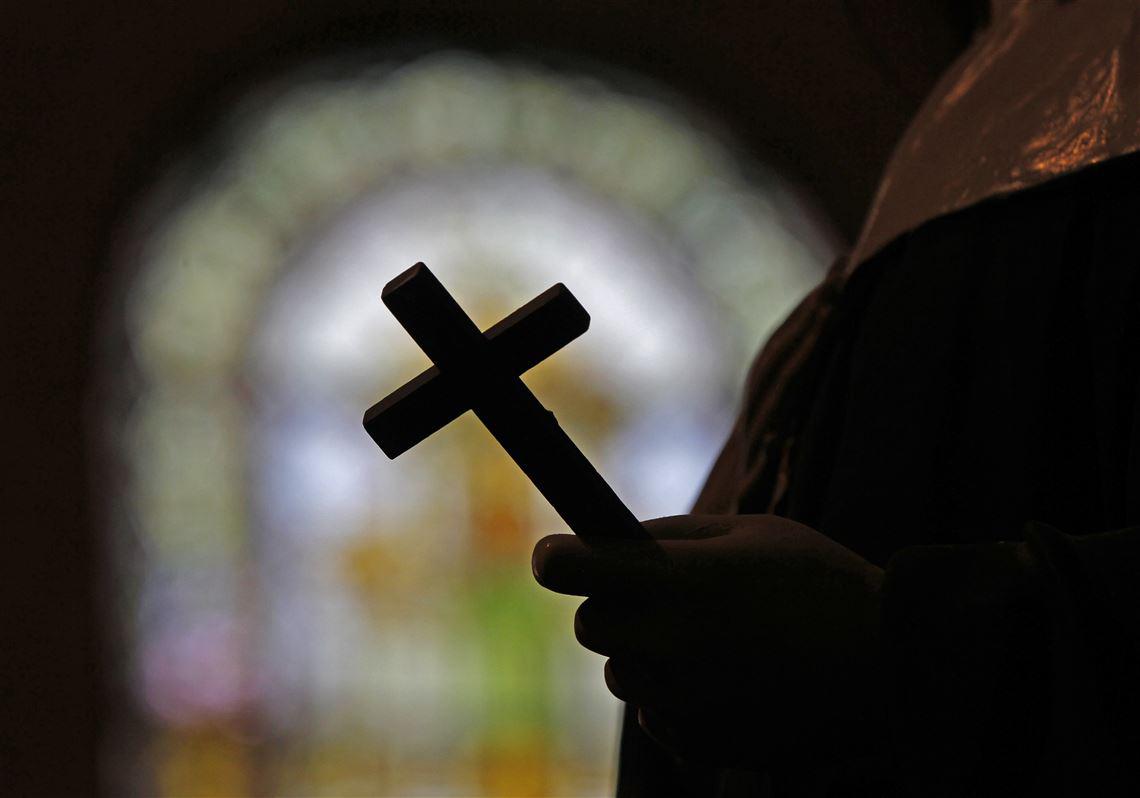The Pennsylvania Supreme Court on Wednesday authorized the release of the name of a Catholic priest accused in a grand jury report of sexual abuse, but it kept a seal on references to his mental-health records.
The court voted 6-1 to grant the request of the petitioner, which it identified by initials as RML, to keep his mental-health history redacted, citing strict statutory restrictions on the release of mental-health medical records. The court prothonotary has 14 days to unseal the name of the priest and other details not pertaining to his treatment.
The ruling involved unfinished business from the mammoth 2018 grand jury report alleging sexual abuse by 300 Catholic priests from six dioceses across seven decades.
A small group of priests had petitioned successfully last year to the Supreme Court to keep their names redacted entirely, saying the accusations violated their right to reputation under the Pennsylvania Constitution.
RML, however, was not challenging the report for including his name, only for including information from his mental-health treatment. The court kept his name confidential while it considered that petition.
Attorney General Josh Shapiro’s office, which oversaw the grand jury investigation, contended that RML had waived his right to keep his records confidential because he had agreed to share them with diocesan officials after he was accused of sexual abuse in the mid-1990s.
But that didn’t mean RML agreed to share the records with everybody, Justice Debra Todd wrote in the majority opinion. She cited “the manifest legislative purpose of shielding confidential mental health treatment records from public view.”
The lone dissenter, Justice Sallie Updyke Mundy, said RML “waived all future privilege in those records when he released them to the diocese over twenty years ago.”
Efrem Grail, attorney for RML, said he’s “grateful that the Pennsylvania Supreme Court fully recognized the importance of maintaining the confidentiality of mental-health and treatment records. My client unfortunately didn’t live to see the day that his privacy rights would be vindicated, but we are grateful that the court has scored a victory for patient rights.”
He declined to name his client.
However, the initials match that of the late Rev. Richard L. Lelonis, a priest of the Diocese of Pittsburgh who died Oct. 20 at age 74. The Supreme Court decision refers to pages in the grand jury report in which Father Lelonis would fit alphabetically, and the unredacted portions of the report have details consistent with his work history, in which he had an administrative but not a parish assignment.
Father Lelonis was also accused of sexual abuse in two pending lawsuits filed last December against the Diocese of Pittsburgh, and the diocese acknowledged late last year it had removed him from ministry in September 2018 due to allegations of abuse.
The portions of the grand jury report pertaining to RML indicate that in the 1990s, the diocese learned of an accusation that the priest had sexually abused a boy at least once a month for years, plying him with alcohol and pornographic magazines, going on overnight trips with him and engaging in oral sex once a month for years.
The alleged victim told the diocese that when he threatened to report the abuse, the priest grabbed him by the throat and threatened his life.
The diocese had RML sent for a psychological evaluation and eventually returned him to full-time ministry. Beginning in 2002, however, the diocese restricted him to non-parochial ministry “without access to children, in spite of his admission ... of his ‘attraction to minors’” to a board assessing claims against him.
